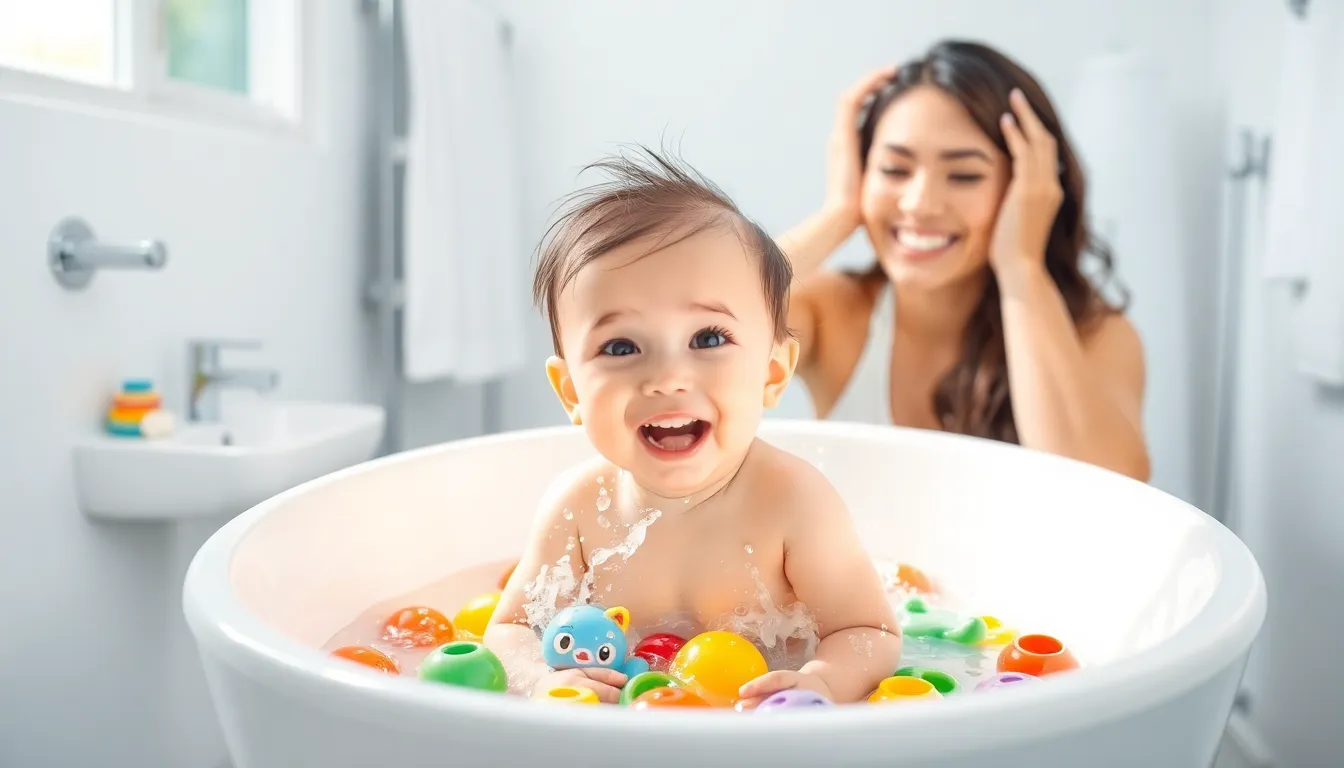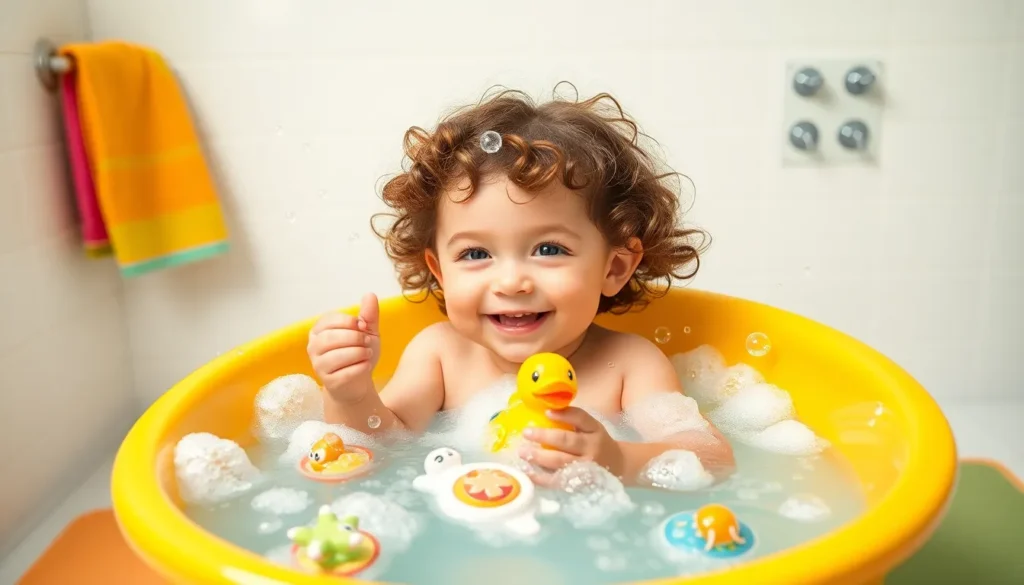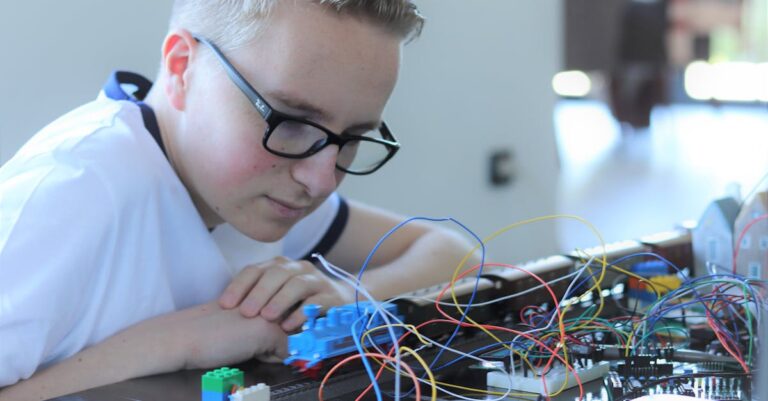When it comes to toddlers, cleanliness can feel like an Olympic sport. Between sticky fingers and mysterious stains, keeping little ones clean is no small feat. But don’t worry, mastering toddler hygiene can be as fun as a game of hide-and-seek. With a few simple tips, parents can turn bath time and tooth brushing into exciting adventures rather than daily battles.
Table of Contents
ToggleImportance Of Toddler Hygiene
Maintaining toddler hygiene holds significant value for both health and development. Establishing routines early enhances their overall well-being.
Health Benefits
Good hygiene practices directly impact toddlers’ health. Clean hands can reduce the spread of germs, preventing illnesses like colds and stomach viruses. Regular bathing removes dirt and bacteria, which can lead to skin infections if neglected. Proper oral hygiene promotes healthy teeth and gums, decreasing the risk of cavities. Encouraging these habits from an early age supports a lifetime of better health.
Developmental Aspects
Toddler hygiene plays a role in emotional and social development. Learning self-care routines builds independence, helping children gain confidence in personal hygiene tasks. Social skills improve as toddlers interact positively with peers, knowing they’re clean and fresh. Observing caregivers practice good hygiene reinforces learning and creates a foundation for lifelong healthy habits.
Daily Hygiene Routines

Maintaining daily hygiene routines for toddlers ensures their health and fosters independence. Simple practices make routines enjoyable and easy to integrate into daily life.
Bathing Practices
Bathing toddlers involves more than just cleaning. Warm water and gentle soap help remove dirt and germs. Parents can play with bath toys to create a fun, engaging experience. Using a non-slip mat prevents accidents during bath time. Washing hair with mild shampoo once a week keeps it clean without drying out the scalp. After bathing, drying off with a soft towel helps them feel comfortable. It’s essential to check water temperature to avoid burns. Establishing a routine encourages toddlers to look forward to bath time.
Oral Care
Oral care starts early and sets the foundation for healthy habits. Parents should brush toddlers’ teeth twice a day using a fluoride toothpaste. Supervision is key until children develop the dexterity to brush effectively. Choose a toothbrush with a small head and soft bristles for gentle cleaning. Singing a fun song can make brushing feel less like a chore. Swishing water after meals reduces plaque buildup. Regular dental check-ups help monitor oral health and prevent issues. Making oral care a family activity fosters positive attitudes toward hygiene.
Diapering And Potty Training
Maintaining hygiene during diapering and transitioning to potty training plays a crucial role in a toddler’s development. Efficient practices ensure comfort and cleanliness while fostering independence.
Best Practices For Diapering
Choose the right diaper size to prevent leaks and irritation. Change diapers promptly after soiling to maintain skin health and comfort. Use wipes or a damp cloth to clean the diaper area thoroughly, wiping front to back to prevent infections. Apply a barrier cream to protect against diaper rash. Keep a clean and organized changing station equipped with essentials like diapers, wipes, and creams for convenience. Ensure proper handwashing after each diaper change to minimize the spread of germs. Regularly check for any signs of irritation or rash, and consult a pediatrician if issues arise.
Transitioning To Potty Training
Introduce potty training when a toddler shows signs of readiness, such as staying dry for extended periods or expressing interest in the toilet. Use a potty chair that is child-sized for comfort and confidence. Encourage regular bathroom visits, such as after meals or before bedtime. Allow the toddler to pick out their underwear to create excitement around this new milestone. Celebrate successes with praise to build positive associations with using the toilet. Be patient during this transition as accidents may happen, reinforcing that it’s a normal part of learning. Maintain consistency and encourage independence to enhance self-care skills.
Nutrition’s Role In Hygiene
Nutrition plays a crucial role in maintaining toddler hygiene. A balanced diet not only supports growth but also contributes to overall health and hygiene.
Healthy Eating Habits
Healthy eating habits significantly affect toddlers’ hygiene. Nutrient-rich foods like fruits and vegetables strengthen the immune system, reducing the risk of illnesses. Whole grains and protein sources also promote energy and proper metabolism. An increase in fiber-rich foods aids digestion, preventing stomach-related issues. Parents can encourage healthy eating by offering a variety of options, making meals colorful and appealing. Involving toddlers in meal preparation adds excitement and encourages them to try new foods. Positive associations with nutritious foods create lasting habits and improve their overall hygiene and wellness.
Hydration and Skin Health
Hydration directly influences toddlers’ skin health. Water intake helps maintain skin elasticity and prevents dryness, which is essential for developing skin. Sticking to a routine of offering water throughout the day ensures toddlers stay well-hydrated. Consuming hydrating foods, such as cucumbers and oranges, also aids in meeting fluid needs. Keeping skin moisturized with appropriate lotions is equally important. A consistent hydration regimen supports not just skin health, but also overall physical wellness, contributing to the maintenance of hygiene. Encouraging toddlers to drink water regularly fosters lifelong habits that lead to healthier hygiene practices.
Maintaining toddler hygiene doesn’t have to be a daunting task. By turning daily routines into engaging activities parents can instill lifelong habits in their children. Incorporating fun elements into bath time and tooth brushing makes these essential practices enjoyable rather than a chore.
Establishing consistent hygiene routines not only supports toddlers’ health but also fosters their independence and confidence. As children learn to care for themselves they develop essential social skills and a sense of responsibility.
With the right approach and a bit of creativity parents can create a positive environment that encourages good hygiene habits, setting the foundation for their children’s overall well-being.






